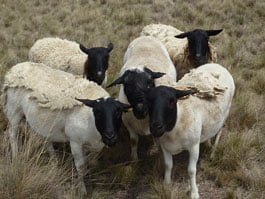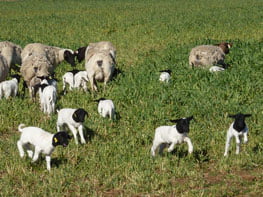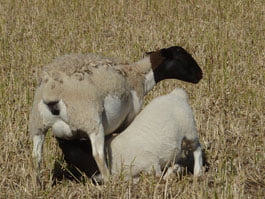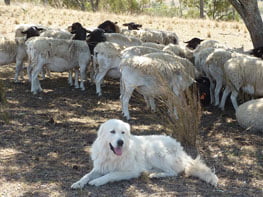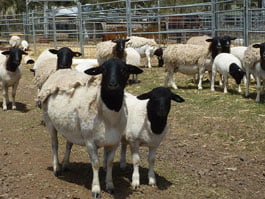Sheep Management
Breeding
The stud ewes are mated in single sire groups from late February to late March. The sheep are at their natural breeding peak at this time so this correlates with most lambing occurring in July and August. Despite the common dry conditions, the ewes prove their high fertility by conceiving quickly, as the majority lamb over a three week period.
Nutrition
When environmental conditions are unfavourable, extra supplementation in the form of loose licks to enable better utilisation of low-quality dry pastures are provided to all categories of sheep. At specific times of higher nutritional needs, especially in the month before lambing, during lambing and lactation and at weaning, cereal hay may be provided if little quality paddock roughage is available. If conditions allow, forage crops are grown for grazing by the lactating ewes and their lambs. Dry sheep only graze on the unimproved pastures.
Health
The stud is accredited Ovine Brucellosis free and in the program to check the rams tri-annually.
All lambs are vaccinated twice with Glanvac 6 to protect against the significant Clostridial diseases. Pregnant ewes and breeding and sale rams are also vaccinated at appropriate times. Yarrabee Dorpers are proving to be exceptionally resistant to internal parasites and are rarely, if ever drenched. The ongoing dry conditions have obviously helped greatly with this situation.
Predator Protection
The sheep and goats at Yarrabee are protected by Maremma guardian dogs as the local wild dog problem is significant. Donkeys are also used in some paddocks so the sheep are familiar with these types of guardians.
All fences that the sheep are housed behind are built to a high standard, so Yarrabee Dorpers are not in the habit of escaping or applying pressure to fences.
